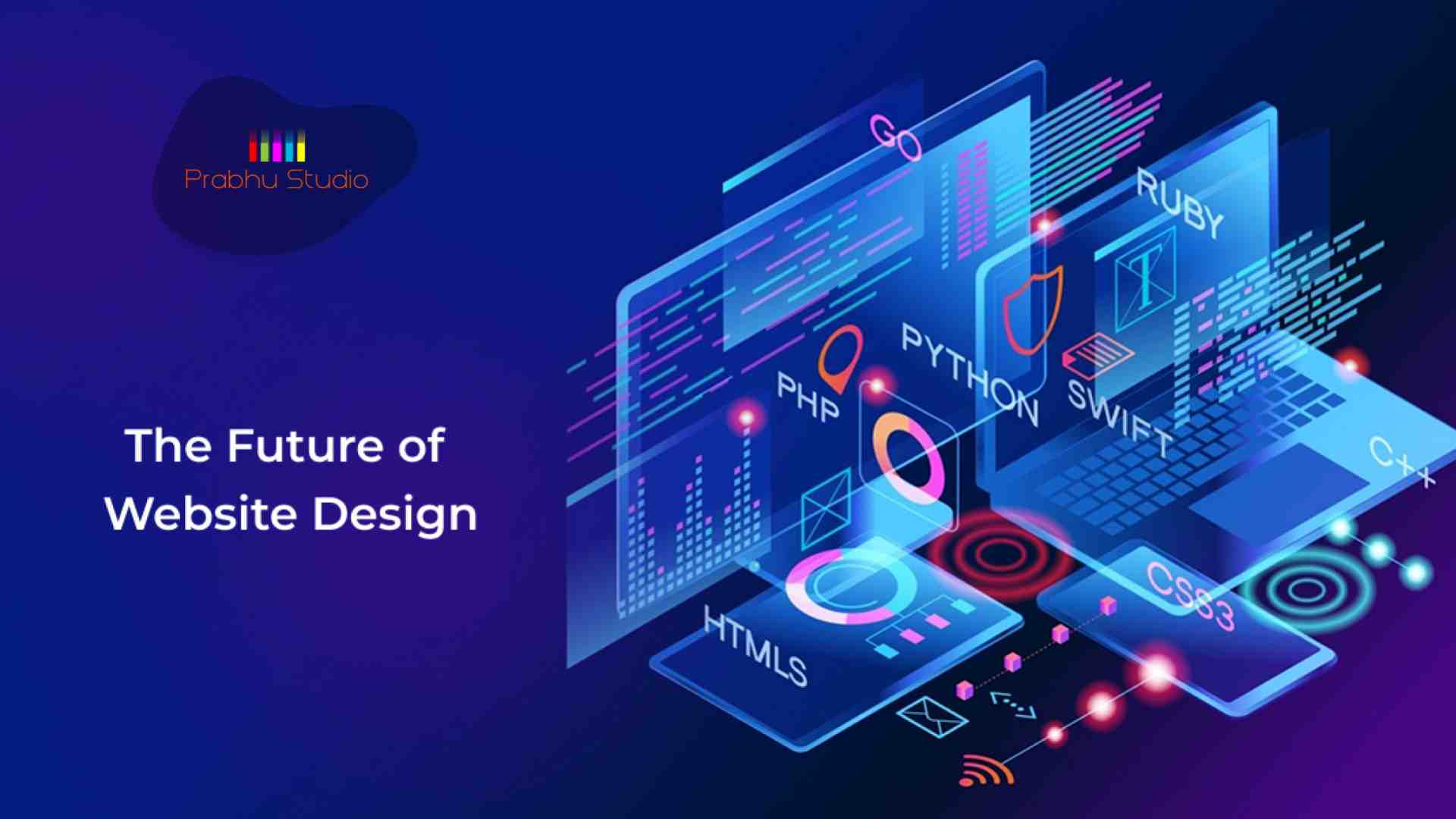
In today's digital age, having a professional website is no longer a luxury, but a necessity for businesses of all sizes. A well-designed website can help you stand out from the competition, establish your brand identity, and attract potential customers. However, with so many web design agencies to choose from, selecting the right one for your business can be a daunting task.
In this blog post, we will guide you through the process of choosing the right web design agency for your business. We will cover the essential factors to consider, the benefits of working with a reputable agency, and provide tips on how to evaluate potential agencies.
Essential Factors to Consider
When selecting a web design agency, there are several essential factors to consider. Here are some of the most important ones:
Experience: Look for an agency that has experience in designing websites for businesses in your industry. A good agency will have a portfolio that showcases their work and expertise.
Portfolio: Review the agency's portfolio to see if they have designed websites that align with your business goals and objectives. A good portfolio should include a range of projects that demonstrate their skills and expertise.
Services: Determine what services the agency offers. Do they provide web design, development, and maintenance? Do they have expertise in specific areas such as e-commerce or content management systems?
Communication: Good communication is crucial when working with a web design agency. Look for an agency that has a clear and concise communication style.
Budget: Determine your budget for the project and ensure that the agency is willing to work within your budget constraints.
Timeline: Establish a timeline for the project and ensure that the agency is able to deliver the project within the agreed-upon timeframe.
Team: Meet with the team behind the agency to get a sense of their expertise, communication style, and approach to web design.
Certifications: Check if the agency has any relevant certifications or awards that demonstrate their expertise in web design.
Reviews: Read reviews from previous clients to get an idea of the agency's strengths and weaknesses.
References: Ask for references from previous clients and contact them to get a sense of their experience working with the agency.
Benefits of Working with a Reputable Agency
Working with a reputable web design agency can bring numerous benefits to your business. Here are some of the most significant advantages:
Professional Results: A reputable agency will deliver high-quality results that meet your business goals and objectives.
Expertise: A good agency will have expertise in web design and development, which can save you time and resources.
Time-Efficiency: By outsourcing your web design needs, you can free up time to focus on other aspects of your business.
Cost-Effectiveness: Working with a reputable agency can be more cost-effective than hiring an in-house team.
Support: A reputable agency will provide ongoing support and maintenance to ensure that your website remains up-to-date and secure.
Scalability: A reputable agency will be able to scale their services to meet your growing needs as your business expands.
Innovative Solutions: A reputable agency will be able to provide innovative solutions to help you stay ahead of the competition.
Risk Management: A reputable agency will be able to manage risks associated with web design and development, ensuring that your website is secure and reliable.
Evaluating Potential Agencies
When evaluating potential agencies, here are some tips to keep in mind:
Research: Research the agency's reputation online by reading reviews, checking their ratings, and looking for testimonials.
Ask Questions: Ask questions about their experience, services, and process. This will help you determine if they are a good fit for your business.
Check their Portfolio: Review their portfolio to see if they have designed websites that align with your business goals and objectives.
Meet with the Team: Meet with the team behind the agency to get a sense of their expertise, communication style, and approach to web design.
Check their Certifications: Check if the agency has any relevant certifications or awards that demonstrate their expertise in web design.
Read Reviews: Read reviews from previous clients to get an idea of the agency's strengths and weaknesses.
Check their References: Ask for references from previous clients and contact them to get a sense of their experience working with the agency.
Conclusion
Choosing the right web design agency for your business is a crucial decision that requires careful consideration of several factors. By considering experience, portfolio, services, communication, budget, timeline, team, certifications, reviews, and references, you can ensure that you select an agency that meets your business needs.
At Prabhu Studio, we understand the importance of choosing the right web design agency for your business. Our team of experts has years of experience in designing websites for businesses of all sizes and industries. We offer a range of services including web design, development, and maintenance, and our portfolio showcases our expertise in creating high-quality websites that meet our clients' business goals and objectives.
If you're looking for a reputable web design agency that can deliver professional results, expertise, time-efficiency, cost-effectiveness, support, scalability, innovative solutions, and risk management, look no further than Prabhu Studio. Contact us today to learn more about how we can help your business succeed online.

The world of website design is continually evolving, and as we move into 2023 and beyond, there are many predictions about what the future holds. With more businesses moving their operations online, the demand for effective website design is at an all-time high. In this blog post, we'll explore some of the top predictions for the future of website design.
1. Mobile-First Design
Mobile-first design has been a significant trend in website design for several years, but it's expected to become even more critical in the future. As more people use their mobile devices to access the internet than ever before, it's essential to design websites that work well on smaller screens. Mobile-first design involves designing a website for mobile devices first and then scaling up to desktop versions. This approach ensures that websites are optimized for smaller screens, have faster loading times, and provide better user experiences.
Google has already started to prioritize mobile-first websites in its search engine rankings, making it even more critical for businesses to adopt this approach. With more than half of all internet traffic coming from mobile devices, businesses that ignore mobile-first design will risk losing potential customers.
2. Voice-Activated Interfaces
Voice-activated interfaces are becoming increasingly popular, thanks to the rise of voice assistants like Alexa and Siri. In the future, website design is likely to incorporate more voice commands to enhance user experiences. This could mean having voice-activated search or voice navigation options to make browsing more accessible.
Voice-activated interfaces have several benefits, such as allowing users to interact with websites hands-free, which can be particularly useful for people with disabilities. They can also be used to create more engaging and interactive experiences, making websites more memorable and shareable.
3. Advanced Personalization
Personalization has become an essential aspect of website design, and it's expected to become even more advanced in the future. With the use of AI and machine learning, websites will be able to deliver highly personalized experiences based on user behavior, preferences, and demographics. This could mean offering personalized product recommendations, content, and even website layouts.
Advanced personalization can be particularly useful for businesses that have a wide range of products or services. By tailoring website experiences to individual users, businesses can increase engagement and encourage repeat visits. Personalization can also help businesses stand out from their competitors, as customers are more likely to remember and recommend websites that provide personalized experiences.
4. 3D Design Elements
3D design elements are becoming increasingly popular in website design, and this trend is likely to continue into the future. 3D design elements can be used to create more engaging and interactive experiences, such as 3D product models, virtual tours, and animations.
The use of 3D design elements can make websites more memorable and shareable, as users are more likely to remember websites that provide unique and interactive experiences. They can also be particularly useful for businesses that sell physical products, as 3D product models can help customers get a better sense of what they're buying.
5. Increased Accessibility
As the internet becomes more ingrained in our daily lives, it's essential to ensure that websites are accessible to everyone, regardless of disabilities. In the future, website design is expected to focus more on accessibility, including features such as alternative text for images, keyboard navigation options, and color contrast settings.
Accessible websites can be particularly important for businesses that provide services to people with disabilities, as they can help businesses reach a wider audience. They can also be beneficial for businesses in general, as accessible websites are more likely to be used and recommended by customers.
6. Sustainability
Sustainability is becoming an increasingly important issue in the world of website design, and it's expected to become even more critical in the future. With concerns about the environment growing, businesses are looking for ways to reduce their carbon footprint, and website design is no exception.
In the future, website design is likely to incorporate more sustainable practices, such as optimizing images and videos to reduce page load times and using eco-friendly web hosting providers. Businesses may also focus on designing websites that encourage more sustainable behaviors, such as promoting recycling or reducing paper use.
Sustainable website design can be particularly important for businesses that want to appeal to environmentally conscious consumers. By demonstrating a commitment to sustainability, businesses can increase brand loyalty and attract new customers who prioritize sustainability.
7. Augmented Reality
Augmented reality (AR) has been around for several years, but it's only recently become more accessible to businesses. In the future, website design is expected to incorporate more AR features, such as allowing customers to see what furniture would look like in their home or providing virtual try-on options for clothing.
The use of AR can provide a more engaging and interactive experience for website visitors, making websites more memorable and shareable. It can also be particularly useful for businesses that sell physical products, as customers can get a better sense of what they're buying before making a purchase.
Conclusion
The future of website design is exciting, with many new trends and technologies on the horizon. Mobile-first design, voice-activated interfaces, advanced personalization, 3D design elements, increased accessibility, sustainability, and augmented reality are just some of the predictions for the future of website design.
To stay competitive in the ever-evolving world of website design, businesses must be willing to adapt to these new trends and technologies. By doing so, businesses can create websites that provide memorable and engaging experiences for their customers, increase brand loyalty, and ultimately drive sales.
In conclusion, website design is an ever-changing field that requires constant innovation and adaptation. As we move into 2023 and beyond, businesses that keep up with the latest trends and technologies will be best positioned to succeed in the digital marketplace.

